SUMMARY
This is AI generated summarization, which may have errors. For context, always refer to the full article.
![[ANALYSIS] Myanmar, Cambodia, and the Philippines: Quo vadis?](https://www.rappler.com/tachyon/2021/04/myanmar-tragedy.jpg)
The following is Part 1 of a two-part series. Read Part 2 here.
In the weeks since the Myanmar military leadership’s vague coup threats materialized into the real thing on February 1, Myanmar descended into the kind of bloody spiral that the region had hoped the country had left behind. The coup, ostensibly motivated by the Tatmadaw protesting the results of the November 2020 elections favoring the National League for Democracy (NLD) as illegitimate, dropped the curtain on Myanmar’s tentative reforms towards democratic rule, which began in 2010-2011. But that is not the tragedy of the past months.
The coup leadership may have been counting on repeating the 1962 experience, which ushered in military rule for half a century, but this is not the age of the State Law and Order Restoration Council (SLORC). Ten years and a globalized world was more than enough to give the Myanmar peoples the impetus, the creativity, and even the platforms, to resist.
Doctors and civil servants stopped work and protested alongside the youth. And it should be telling when the coup sparks an unprecedented unity among rival ethnic groups in a strife-fractured state, trading war among themselves for war with the putschists. But that is not the tragedy.
No, the crushing tragedy is the indiscriminate body count racked up by security forces enforcing the coup on a resistant peoples. Indiscriminate enough to kill a daughter running to her father. To make policemen run for the border rather than stain their hands. To unleash combat aircraft on the restive ethnicities, killing a parent whose child sat in his lap. To kill a young woman, dying for her ideals, whose shirt promised, “Everything will be OK.”
Looming dictatorship in Cambodia
Equally tragic is seeing the same spiral in Cambodia, once hailed as a success story for transitioning towards democracy and internationally-mediated peace settlements, where we observers and students of politics once thought everything would be okay.
As reported and condemned by Human Rights Watch, on March 1, 2021, a municipal court in Phnom Penh convicted in absentia nine exiled leaders of the dissolved Cambodia National Rescue Party (CNRP) for crimes punishable by Cambodia’s penal code. Sentenced were opposition leaders Sam Rainsy, Mu Sochua (who came to the Philippines last February 2020 to lend her support to Senator Leila De Lima), and others. They were also fined with huge sums of money and stripped of their rights to vote, run for office, and serve as a public official.
Forthcoming is the trial of other activists, including Theary Seng, famous as a survivor of the Pol Pot genocide campaign and a big champion of social accountability. When we were working in the Ateneo School of Government, we worked closely with Theary on a shared commitment to mainstream social accountability in our region.
Theary has pointed out: “The real purpose of the charges against me is to silence me, as I have been a long-standing and outspoken critic of Mr. Hun Sen and his party. But under both the Constitution of Cambodia and international law of which Cambodia is a party to, I have the right to freedom of opinion and expression, which includes the right to express dissent, criticize the government and its leaders, advocate for a peaceful change of government, and share political opinions.”
In a recent interview, she also emphasized the need to view these cases through a political lens, not a judicial one. She said: “The world has moved on, and Cambodia is fragile, but the international community will not put the time and money into Cambodia. So in this regard, Cambodia is encountering an existential crisis. That’s not to say I’ve lost hope, I will always have hope, but it hurts me to see the conditions of my childhood [leading up to the Khmer Rouge] replay themselves. [As a child] I did not know what was going on, [I was] just trying to survive. I will always have hope, but we are facing perilous times.”
Is the ASEAN way a good way?
Dispensing with the preliminaries first: no doubt the above developments invites opprobrium and condemnation under international law, even in matters internal to a country. The International Commission of Jurists comments that the Myanmar coup is a violation of the very Constitution it imposed, and a violation of the general principles of the rule of law. The indiscriminate use of force on a civilian population horrifically testifies for itself. Analogous comments have been made for Cambodian developments, of Sen’s methodical exclusion of all dissenting voices from political life, making political life itself impossible.
They may appeal to the ASEAN “way” of noninterference in internal affairs as regional law. It is said that Myanmar precisely sought ASEAN membership for that insulation from global pressures. That ignores how tradition, even within ASEAN, evolved, and with it, legal commitments. While ASEAN was born with a promise, cynically speaking, that our states would not be launchpads for the ambitions of our imperial forebears or inheritors of their ambition (hence, the non-interference “doctrine”), the maturing organization found that non-interference could not stand on its own, that the region had to live by global standards in its aim to capture its prosperity for its peoples — and to have a chance to help define those standards for the sake of its peoples (or at least regime survival).
Thus could Ambassador Severino in 2001 speak of ASEAN moving from collegial informality to a greater desire, if not the presence, for predicable, dependable rules. Thus had ASEAN worked with the UN to negotiate an end to the Cambodian conflict, hand in hand with deescalating its own conflict with Vietnam — and to later admit both as fellow collegial members. Thus the ASEAN Charter, ratified by Myanmar in 2008 even before the tentative democratic reforms, says that while the Members “[respect] the fundamental principles of amity and cooperation…sovereignty…and noninterference,” in the next breath declare “[adherence to] the principles of democracy, the rule of law, and good governance, respect for and protection of human rights and fundamental freedoms.” All to secure that hard-won, post-1991 “ASEAN Peace.”
The cynic may scoff at the above declaration as an empty promise, but in violating the latter, the Myanmar coup and Sen’s aggressive power plays also violate and risk the former, too. Myanmar is long held as ASEAN’s weak spot, a lightning rod for human rights critics of the grouping, the region’s bugaboo of the West, while at the same time laid bare to Chinese overtures. Cambodia is not too far away from Myanmar, unfortunately — and not from the West’s criticism of and Beijing’s overtures towards authoritarians either.
Yet the Tatmadaw and Hun Sen have done nothing to shield themselves or their countries from intrusions: the Americans and Europeans retracting their bridges – extended due to the democratic turn while appeasing nativist, isolationist instincts; the Chinese looking across their border seeing both threats to their nationals, but also opportunity for making further inroads into, and collecting tribute from, the region. And even though their ASEAN brethren, Indonesia and Malaysia, are increasingly vocal, they may tire of Myanmar and Cambodia and the vulnerabilities they bring. – Rappler.com
Tony La Viña teaches law and is former dean of the Ateneo School of Government.
Christian Laluna is a graduate of the Ateneo Law School. He is writing a book with La Viña on the Bill of Rights during the pandemic.
Add a comment
How does this make you feel?
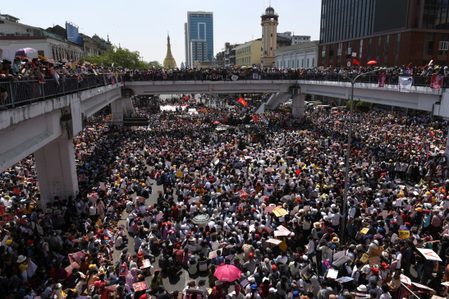
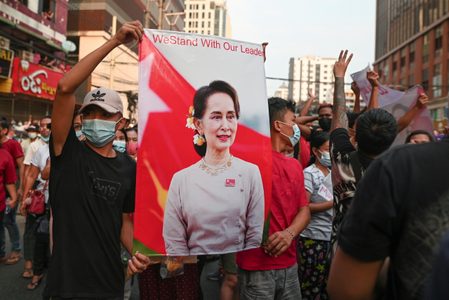

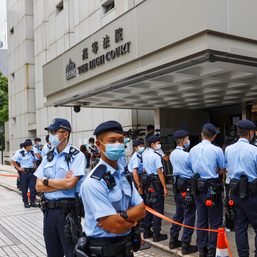
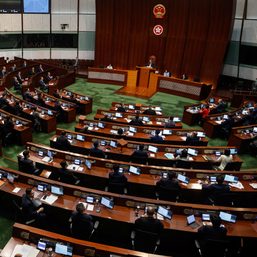
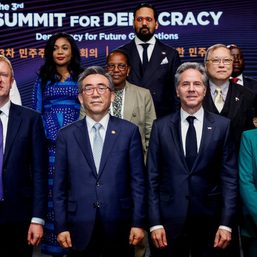

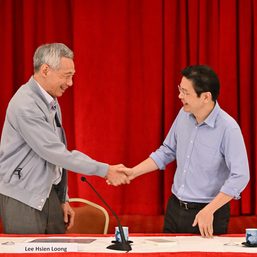
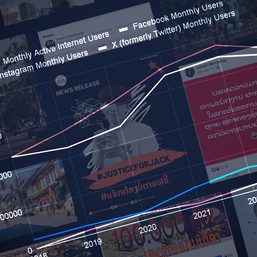


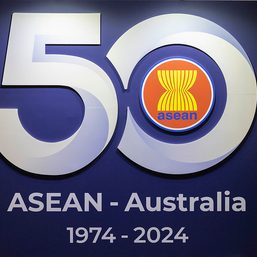
There are no comments yet. Add your comment to start the conversation.